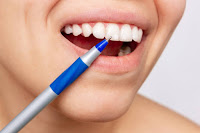Bruxism in children

Bruxism is a harmful behavior that can lead to serious damage to the teeth. Hence, it is essential to bring your child to the dentist for an assessment of bruxism. It is described as the unproductive clenching or grinding of teeth during the day or night. Approximately 15 percent of children and up to 96 percent of adults experience bruxism. The cause of bruxism is uncertain. It has been associated with stress, occlusal disorders, allergies, and sleep positions. Moreover, the occurrence of bruxism is better predicted by the combination of type A personality traits and stress. Diagnosing bruxism can be challenging due to its vague pathology. In addition to sleep partner complaints, clenching and grinding teeth, sleep bruxism, facial muscle pain, jaw and facial bone pain, temporomandibular joint disorders , facial pain, fibromyalgia, and chronic fatigue diseases are connected. The primary indications of bruxism include tooth erosion, loose teeth, enlarged chewing muscles, and sen...





